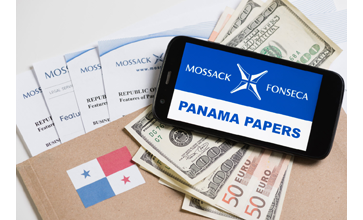A Global ‘Coming Together’ Over Compliance and Corruption?
April 13th, 2016

The last several weeks’ news cycle has been an extraordinary time for compliance departments. From the initial exposure of the Unaoil bribery scandal, to the largest document leak in history surrounding the #PanamaPapers of Mossack Fonseca, suddenly the seemingly mundane, routine world of compliance was thrust rather dramatically into the global spotlight. But why is this? And why is it that now we are suddenly seeing an explosion of compliance-related activity?
The first answer to “why” we are seeing this phenomena may be that global governments seem to be coming together to enforce “transparency” of financial systems. From an anti-money laundering perspective this transparency falls into two areas – tax evasion and bribery and corruption. These areas are all predicate offenses for money laundering, which means that these crimes have to occur to generate the money which is to be laundered. For the past 20-30 years, a large portion of a compliance professional’s time has been focused on rooting out sanctions violations against Iran, North Korea, and other global countries. However this prioritization started to shift in 2012, and we are now seeing the result of this new emphasis.
Today, compliance professionals and corporate whistle-blowers are exposing how dirty money is flowing through the system. From oil and gas giant Petrobras whose corruption is threatening to upend a government and cause the Brazilian economy to slide into a deep recession; to FIFA and its links to offshore investments and personal wealth creation; to Unaoil and how extraction companies utilized their “services” to win lucrative contracts globally; and to finally the #PanamaPapers exposing how the legal world enables these corporations and governments to move money throughout the world.
These revelations are having a tremendous impact on the role banks play in global politics and are only the tip of the iceberg in the changing nature of how the global elite can continue to hide their money in disparate corners of the world. This seems to be only the beginning. Compliance professionals are now finally seeing the fruits of their labour, and the work they have been doing is helping to expose:
- How aid money, sent to the most vulnerable members of society, is being diverted for personal interest of corrupt middle men.
- How unfair business practices enable companies to attain contracts through bribery and other illegal means, thus making it more difficult for honest businesses to continue to grow.
- How shifting of tax proceeds and assets, to avoid paying taxes by corporations and individuals, denies government the revenue necessary to run services for citizens of their countries.
All of these factors combine tax evasion, bribery and corruption, and lead to the destabilization of countries and their citizens. Just imagine if the poorest 20 countries in the world actually received the billions of dollars of aid meant for them to have clean water, electricity and education? Imagine if business would compete on their merits of offerings, rather than on insider connections? Or if politicians in government actually worked to service their constituents rather than just to enrich themselves? Wouldn’t that be something!?
This may sound high minded or even like wishful thinking, but this is the track that the compliance world is on. Through the unending push for transparency in beneficial ownership of corporations like the ones that Mossack Fonseca was creating to the tracking of the monies Unaoil and FIFA were sending, now more than ever, compliance is playing a central role in how the world holds individuals accountable. Perhaps we will see a global “coming together” because of the efforts of compliance professionals around the world – the new beat “cops” watching our money..




